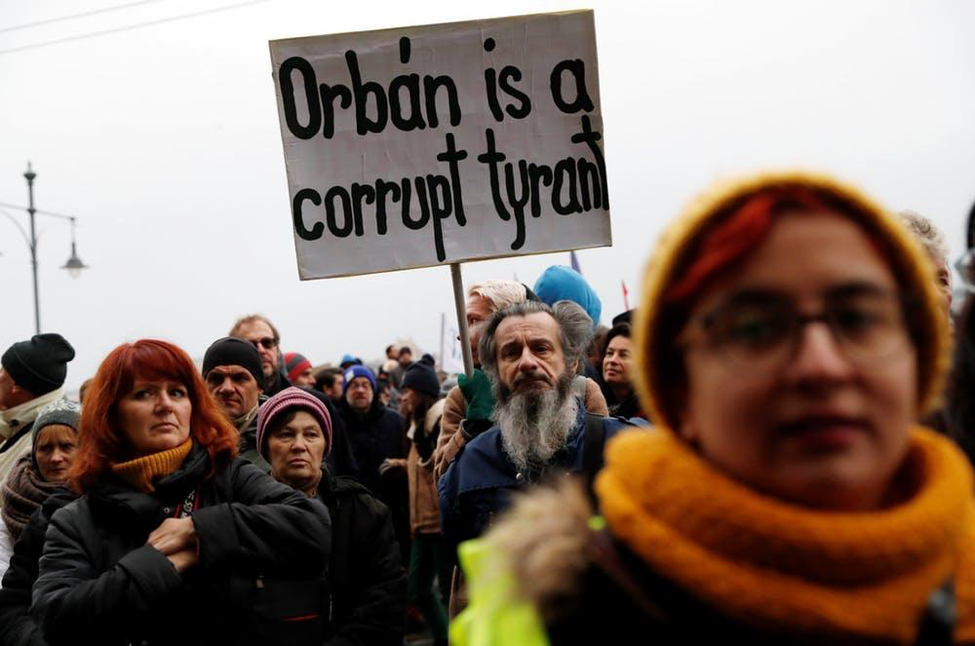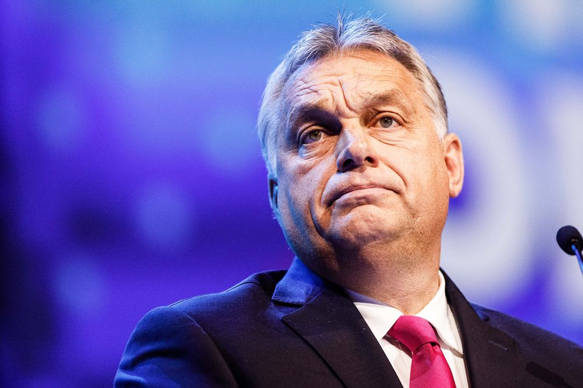Hungary, Orbán and the EU: a case study on corruption and populism
- The Eyes Journal

- Jan 3, 2020
- 4 min read

As leader of the Fidesz party in Hungary, Viktor Orbán became prime minister in 2010, having previously occupied the role from 1998 to 2002. Fidesz took over the MSZP, Hungary’s socialist party, who had been in power during the 2008 financial crisis and whose reputation was seriously affected by corruption scandals. Fidesz won just over two thirds of the seats in parliament, which is what was needed to rewrite the constitution.
Orbán’s victory was perceived as the result of an “anti-establishment” sentiment amongst the public, common in many nations as the 2008 crash’s consequences materialized. Orbán is frequently used as an example of a populist leader, but first, it is useful to outline what populism implies, and, for the purpose of this article, its relations to systemic corruption.
“Populism and corruption feed one another”
The term populism emerged in the 19th century, but became increasingly popular and was used loosely amongst western political scientists in the 1960s to describe anti-elite movements in American society. More recently, scholars have identified several common populist similarities and in current political leaders and protest movements across the globe. Populism essentially creates a dichotomy between the “elite” and “the people”. The elite are considered a single group comprising of the media, political, economic and cultural norm/establishment. There is an emphasis on the moral and political legitimacy of the movement/party/leader because it rests on the opposition of the “people” and the “elite”. It is important to note that both left-wing and right-wing populist movements have existed in the past.
Jan Werner-Müller argues that populism actively weakens democracy, by undermining political pluralism and, by populist parties presenting themselves as the only party legitimately representing the interests of “the people”. Muller identifies three characteristics that apply to current populist leaders and parties: mass clientelism, attempts to destabilise the government and efforts to censor or oppress civilians. Orbán ticks all boxes.

By presenting themselves as a party fighting the establishment, populist parties and leaders benefit from corruption because it helps demonize governmental institutions and points out to the public how these have failed them (Trump’s “drain the swamp” - an ambiguous promise of ending corruption and lobbying in the US- is a good example of this). In the case of Orbán, he took advantage of the European migrant crisis, presenting immigrants as a threat to “real Hungarians”, and used it as ammunition against the EU. He continuously slams the EU and described Brussels as bureaucratic elite, saying it had “lost touch with reality”.
As Transparency International, an international NGO focused on fighting global corruption highlights, populism and corruption “feed one another”. This decade has been characterized by movements requesting accountability and transparency from people, which paradoxically has given rise to populist leaders throughout the world, such as Salvini or Trump. In supposedly dismantling “the system”, populist leaders undermine key governmental bodies. For example, merely months into office, a new constitution was enacted under Orbán in 2012. Supposedly, its purpose was to make Hungary leave its communist past behind, and further amendments were passed in 2013. The provisions in these amendments limited judicial independence from the government, making judges have shorter terms and removing the power of the Constitutional Court to remove laws that are already in the constitution.
Then, in 2015, the Council of Europe’s Group of States against Corruption (GRECO) issued an evaluation report recommending corruption prevention measures regarding members of parliament, judges and prosecutors. The themes examined include conflicts of interest, declaration of assets and income, and ethical training, amongst others. In August of this year, GRECO concluded that Hungary had not implemented 11 out of the 18 recommendations (such as reviewing MPs and prosecutors’ immunity, or the fact that disciplinary proceedings are not handled by a separate body).
Additionally, state capture of EU funding is a prevalent issue in Hungary. Between the period between 2007 and 2020, Hungary received 3.5% of its annual GDP in EU funds. The Corruption Research Center in Budapest reviewed more than 125,000 government contracts issued by the government between 2010-2016. About 60% of these are funded by the EU. The study found that out of these contracts, the ones given to companies owned by 4 men in particular (Lőrincz Mészáros, István Garancsi, István Tiborcz and Lajos Simicska - all former or current Orbán affiliates) were extremely likely to be funded by the EU (73.4% of the time) and are on average 13 times larger than other contracts. Orbán adamantly criticizes the EU publicly, and then redirects its funds to what some call the new Hungarian oligarchy. These companies are commissioned to build seemingly useless infrastructure such as football stadiums or train tracks. Similarly, a New York Times investigation found that Orbán’s government auctioned large areas of farmland to family members and associates, making them qualify to receive EU farming subsidies. The EU penalized the Hungarian government last month for mismanagement of funds, costing them about 2% of Hungary’s economic output if they were to pay it in a single year, but as Tomás García Azcárate, an EU agricultural official points out, the EU has limited power to solve these issues because of how it is up to the individual member-states to enforce land use policies.
Attitudes to corruption is one of the many contradictions of populism. While fighting the morally decaying “élite”, Orbán has managed to protect himself by changing the constitution, consolidating his grip on mainstream media and surrounding himself with a small group of financially influential people. Whereas pre-2010, the social democratic party was involved in a number of corruption scandals, David Jancsics, a prominent Hungarian corruption scholar, claims that Orbán has reshaped systemic corruption (rather than eradicated, as promised) by making it benefit a very narrow elite.
Author: Victoria Verdesoto Phothirath
![2[1].jpg](https://static.wixstatic.com/media/5abadf_f310244424a443b29215dadb17bba49b~mv2.jpg/v1/crop/x_5,y_0,w_1069,h_1080/fill/w_101,h_102,al_c,q_80,usm_0.66_1.00_0.01,enc_avif,quality_auto/2%5B1%5D.jpg)






Comments